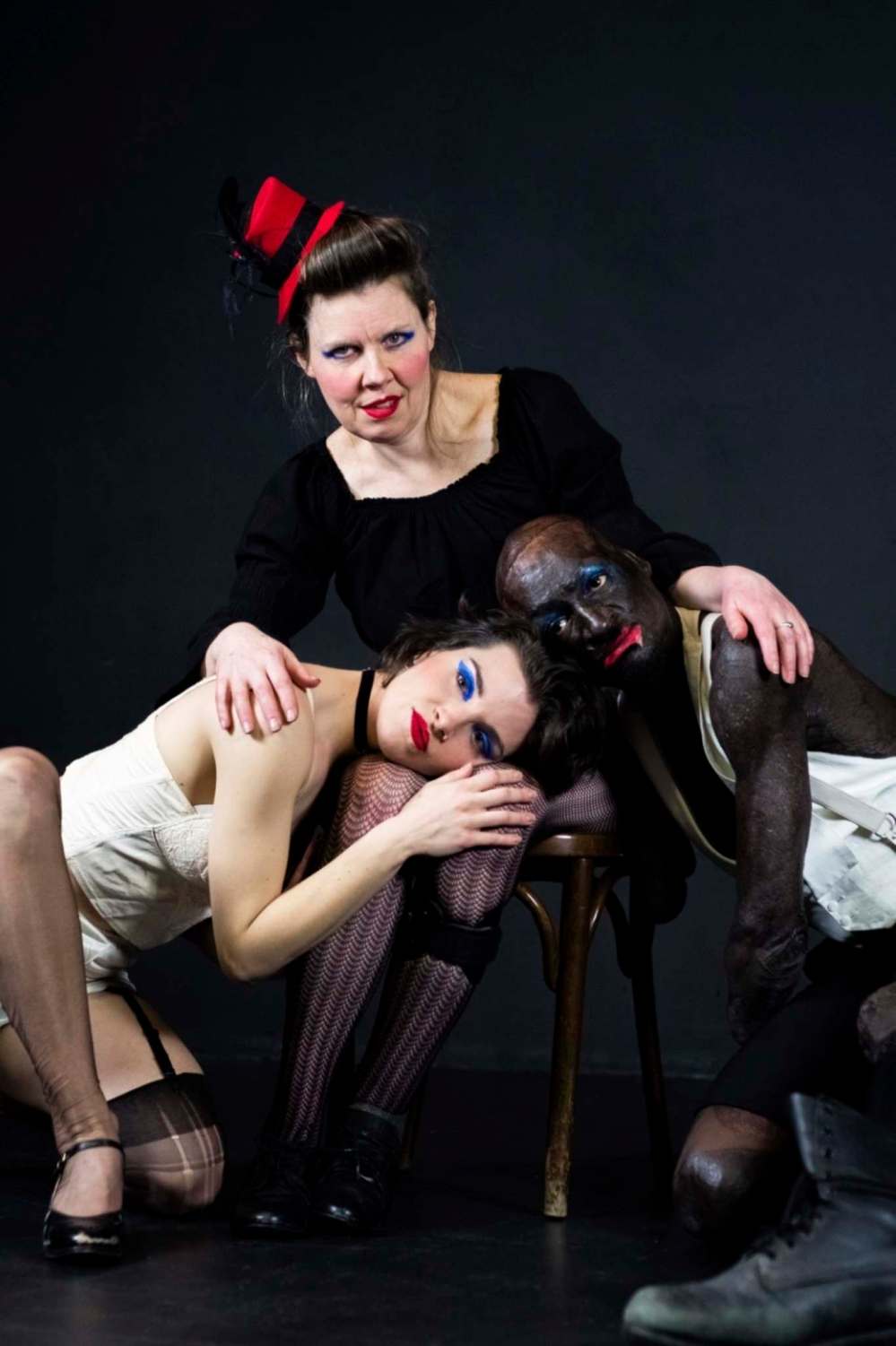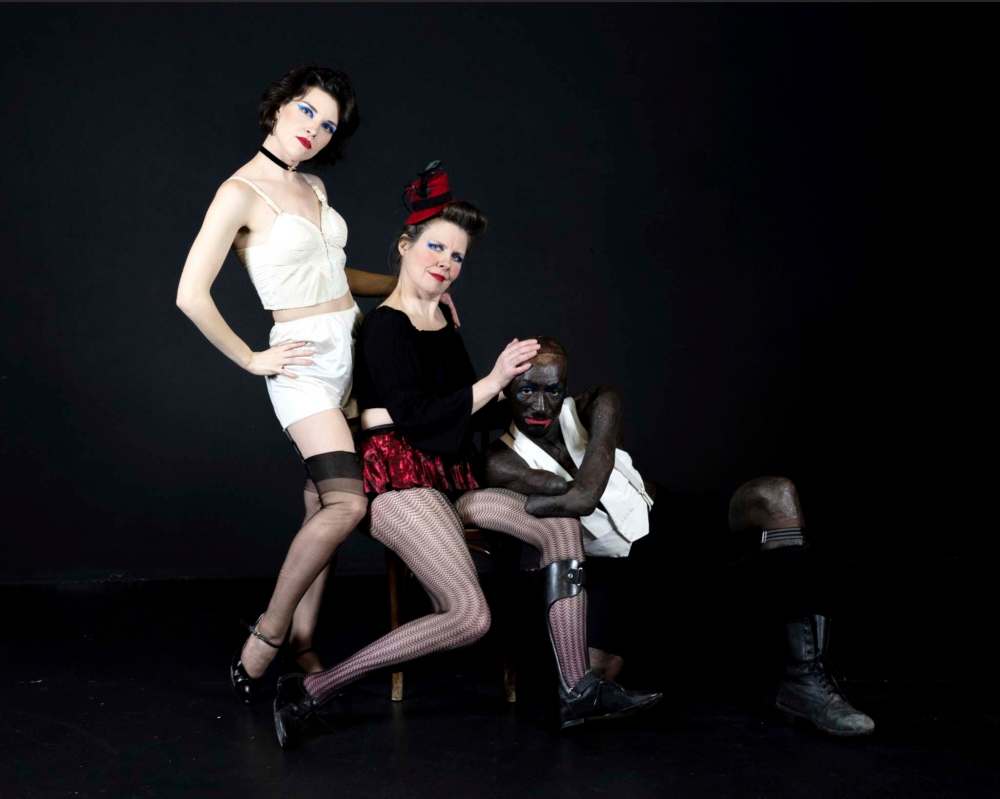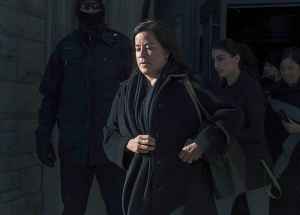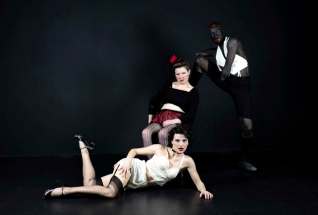Mackie’s back in town Disabled actors sharpen their acting chops for The Threepenny Opera
Read this article for free:
or
Already have an account? Log in here »
To continue reading, please subscribe:
Monthly Digital Subscription
$0 for the first 4 weeks*
- Enjoy unlimited reading on winnipegfreepress.com
- Read the E-Edition, our digital replica newspaper
- Access News Break, our award-winning app
- Play interactive puzzles
*No charge for 4 weeks then price increases to the regular rate of $19.00 plus GST every four weeks. Offer available to new and qualified returning subscribers only. Cancel any time.
Monthly Digital Subscription
$4.75/week*
- Enjoy unlimited reading on winnipegfreepress.com
- Read the E-Edition, our digital replica newspaper
- Access News Break, our award-winning app
- Play interactive puzzles
*Billed as $19 plus GST every four weeks. Cancel any time.
To continue reading, please subscribe:
Add Free Press access to your Brandon Sun subscription for only an additional
$1 for the first 4 weeks*
*Your next subscription payment will increase by $1.00 and you will be charged $16.99 plus GST for four weeks. After four weeks, your payment will increase to $23.99 plus GST every four weeks.
Read unlimited articles for free today:
or
Already have an account? Log in here »
Hey there, time traveller!
This article was published 20/02/2019 (2488 days ago), so information in it may no longer be current.
The first production of the Bertolt Brecht/Kurt Weill show The Threepenny Opera premièred in Berlin in 1928, as Nazism was on the rise and political corruption touched every aspect of life in the Weimar Republic.
THEATRE PREVIEW
The Threepenny Opera
Presented by Sick + Twisted Theatre Company and AA Battery Theatre
West End Cultural Centre
Opens Friday, Feb. 22 to Saturday, March 2
Tickets $30 at WECC or www.eventbrite.ca
So perhaps this may be an especially good time to see the show at the West End Cultural Centre. Co-produced by Sick + Twisted and AA Battery theatre companies, the modern classic is refracted through a lens that encompasses Sick + Twisted’s mission of theatre performed by the disabled as envisioned by the company’s founder, Debbie Patterson.
“This play really is an indictment of capitalism in many ways, and one of the most valuable things I think about disability is that it disrupts capitalism,” says Patterson, 53, who also stars in the production.
“(The play) forces us to recognize that people have value beyond their ability to produce. That’s where the connection most viscerally happens for me,” she says.
Patterson confronted the subject of disability in 1999 when she was diagnosed with multiple sclerosis. She resolved to turn her own experience into opportunities for other disabled performers. That is dramatically manifest in this production, whose cast includes two deaf actors and four physically disabled actors. Among that latter group is Toronto-based actor Prince Amponsah.
“We’ve brought in from Toronto to work on this show,” Patterson explains. “He is a professional actor. He did a season at Shaw. But then he was in a house fire and he lost his hands and half of his arms, and he was very badly scarred.
“So it was really hard for him to work,” Patterson says. “But he’s a brilliant actor, so he’s in this show as a street singer and one of the gang members and then he plays Lucy Brown.
“We do a lot of cross-gender casting,” Patterson explains.
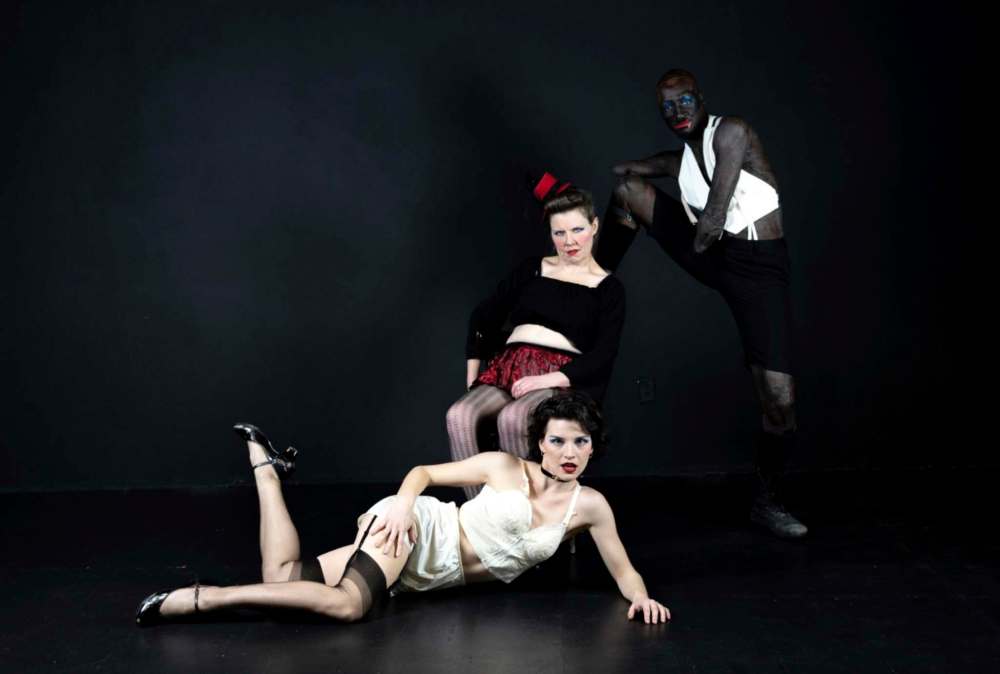
Casting deaf actors in a musical presented its own challenge, Patterson says, including incorporating American Sign Language into the show’s choreography.
“The deaf performers are doing a really complex thing, because they’re ‘singing’ songs in ASL, while they have people who are voicing the songs for them.
“It’s incredibly complex because they can’t hear the music but they’re in rhythm with the music,” she says.
That compelled director Arne MacPherson to keep musical director Paul De Gurse visually connected with the deaf performers “so that the pianist can see the performer and the performer is holding the rhythm in their body and giving it to the musician.”
But in the end, the musical is still the same cheeky work of art it was back in 1928, featuring famous songs such as Mack the Knife and Pirate Jenny.
“I am a fan. I love the music,” Patterson says. “The idea is that it’s a parody of an opera. They’re kind of taking the piss out of the pretentiousness of the opera. It’s designed to be a play that poor people can go to instead of the opera.
“The story is kind of convoluted,” Patterson says. “But it’s got an anarchy to it that I really love.”
The 7:30 p.m. performance on Saturday, Feb. 23 and the matinée performance on Saturday, March 2 at 2 p.m. will be performed with ASL interpretation.
randall.king@freepress.mb.ca
Twitter: @FreepKing

In a way, Randall King was born into the entertainment beat.
Our newsroom depends on a growing audience of readers to power our journalism. If you are not a paid reader, please consider becoming a subscriber.
Our newsroom depends on its audience of readers to power our journalism. Thank you for your support.

